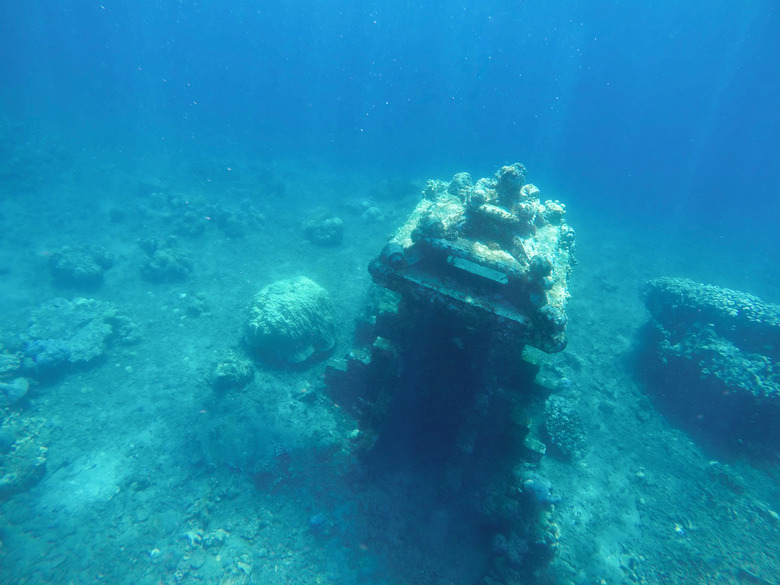Archaeologists Discovered Ruins Of An Ancient Temple At The Bottom Of The Sea
Archaeologists have dug up the remains of two altars from a Nabatean temple, which were discovered underwater on the seabed of Pozzuoli. This region is found within southern Italy, and the now-submerged temple is believed to have once been the heart of Puteoli, a commercial port in the area.
The researchers claim that the remains of the underwater temple are most likely from the first half of the 1st century A.D. The altars are similar to larger great altar found in the same area in 1965. The base of the altar is reported to have DVSARI SACRVM, or "sacred to Dusares," inscribed on it.
This inscription is related to Dushara, the head deity of the Nabatean pantheon and a god that was unique to this religion. The researchers say that the top of the altars found in the underwater temple contain votive niches, which initially held betyls, small sacred stones used as effigies of the gods.
The Nabatean pantheon was an aniconic religion, which means it didn't include any figural representations.

Instead, the underwater temple helps showcase how the pantheon relied on standing stones and other cultic stelae to represent the worshipped gods within it. This set of altars brings the total number of Nabatean-based discoveries to a total of five in this area of the sunken city. It's also likely there are other remains located along the seabed.
The presence of this Nabatean temple has been known for a while. However, archaeologists had yet to define exactly where it was. With this recent discovery, researchers can finally say exactly where the temple was located and perhaps understand more about how the Nabatean people interacted with the merchants and locals in the area.
These kinds of discoveries are always exciting, especially as researchers continue to search for the road to Atlantis, which is still believed to exist somewhere out there. This underwater temple is simply another reminder of the ancient world that humanity once roamed.
